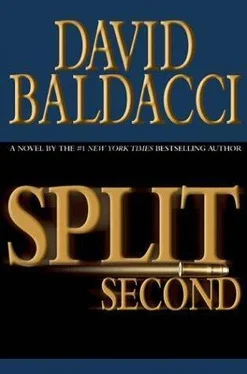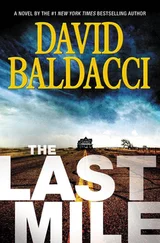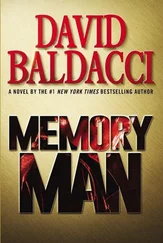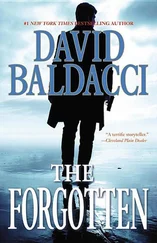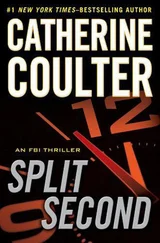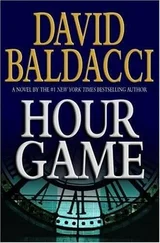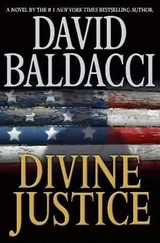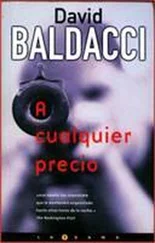"I know, Tony. That's why I want the shovel."
Tony fetched the tool from the garage, and King started to dig around the blue hydrangea. It didn't take long before his shovel clinked against something hard. And a short time later he pulled out the object.
"Nice source of iron," said King as he held up the rusty pistol.
King and Michelle had stopped at a small diner for a quick bite after leaving poor Tony dumbstruck in his mother's garden.
Michelle said, "Okay, I'm officially impressed with both your detective and gardening skills."
"Lucky for us that iron is a component of steel, or else we never would have found the gun."
"I get the gun and blackmail part and why Loretta was murdered. But I still don't understand the point of stuffing the money in her mouth."
King fingered his coffee cup. "I once worked a joint task force with the FBI in L.A. Russian mobsters were extorting money from every business in a one-square-mile area and also running a financial scam, which was why we were involved. We had some snitches on the inside; some cash got to them from us-you fight fire with fire, right? Well, we found our snitches full of bullet holes in the trunk of a car with their mouths stapled shut. When we took the staples out, we found cash wadded up in there, probably the same cash we paid them. The message was clear: you talk, you die and you eat the betrayal money that caused your death."
"So the money in Loretta's mouth was symbolic? The ultimate hush money treatment?"
"That's how I read it."
"Wait a minute. Her son said that the money stopped comingabout a year or so ago. But if the person was still around to kill Loretta, why did he stop paying? And why would she have accepted that? I mean why didn't she go to the police at that point?"
"Well, it'd been seven years or so. What was she going to tell the cops? That she had amnesia and had just remembered everything, and oh, by the way, here's the gun?"
"Well, maybe the person being blackmailed figured that out too, and that's why he stopped paying. Maybe he figured her leverage was gone."
"Whatever the case, apparently very recently someone found out that Loretta was the blackmailer, and she paid with her life."
Michelle suddenly paled and she clutched his arm. "When I spoke with Loretta, she mentioned that she was in that supply closet, although she never said she saw anyone. You don't think?"
King picked up on her concern. "Someone might have overheard her tell you, or she might have told someone else later."
"No, she was killed so soon after I spoke with her. It must have come from my conversation with her. But we were alone on that porch. Yet somebody must have heard. God, I'm probably the reason she's dead."
King gripped her hand. "No, you're not. The person who held her under the water in the bathtub is the reason she's dead."
Michelle closed her eyes and shook her head.
King said firmly, "Listen to me, I'm sorry about what happened to Loretta, but if she was blackmailing the person who killed her, that's a dangerous game she chose to play. She could have gone to the police and given them the gun years ago."
"That's what we should do."
"We will, although the serial numbers have been drilled out, and it's in pretty poor condition. Maybe the forensics boys at the FBI can pull something out of it. There's a satellite office in Charlottesville. We'll drop it off when we get back home."
"So what now?"
"If someone hid a gun in the supply closet of the Fairmount Hotel on the day Clyde Ritter was assassinated, what does that tell you?"
It suddenly hit her. "That maybe Arnold Ramsey wasn't working alone."
"That's right. And that's why we're going there right now."
"Where?"
"Atticus College. Where Arnold Ramsey was a professor."
The beautiful treelined, brick-paved streets and elegant ivy-covered buildings of tiny Atticus College did not seem like a place that could spawn a political assassin.
"I'd never heard of this school until Ritter was killed," said Michelle as she drove her Land Cruiser slowly down the main campus thoroughfare.
King nodded. "I hadn't realized how close it was to Bowlington." He looked at his watch. "It only took us thirty minutes to get here."
"What did Ramsey teach here?"
"Political science with a special emphasis on federal election laws, although his personal interest was radical political theory." Michelle looked at him in surprise.
He explained. "After Ritter was killed, I made it my business to get a Ph.D. in Arnold Ramsey." He glanced at Michelle. "You drop a guy, the least you can do is take the time to learn about him."
"That sounds a little callous, Sean."
"It's not meant to. I just wanted to know why a seemingly reputable college professor would kill a nut of a candidate who had no chance to win anyway and sacrifice his life in the process."
"I would think that would have been checked out pretty thoroughly."
"Not as thoroughly as if it had been a real bona fide candidate. Besides, I think everybody just wanted to get the whole mess over with."
"And the official investigation concluded that Ramsey acted alone."
"Based on what we've found, they apparently concluded incorrectly." He stared out the window. "I don't know, though, it's been a long time. I'm not sure we're going to find anything useful here."
"Well, we are here, so let's give it our best shot. We might spot something everybody else missed. Just like you did with the blue hydrangea."
"But we also might find out something that might be better left undiscovered."
"I don't ever think that's a good thing."
"You're always for the truth coming out?"
"Aren't you?"
King shrugged. "I'm a lawyer. Go ask a real human being."
They were directed from one person and one department to another until they found themselves sitting in the office of Thornton Jorst. He was medium height, trim, and appeared to be in his early fifties. A pair of thick eyeglasses and pale complexion gave him a very professorial air. He'd been a friend and colleague of the late Arnold Ramsey.
Jorst sat behind a cluttered desk piled high with opened books, reams of manuscript pages and a laptop symbolically covered with very low-tech legal pads and colored pens. The shelves that covered the walls of his office seemed to sag under the weight of the impressively thick works collected there. King was staring at the diplomas on the wall when Jorst held up a cigarette. "Do you mind? A professor's inner sanctum is one of the few places left where one can actually light up."
King and Michelle both nodded their assent.
"I was surprised to hear that the two of you were here asking about Arnold."
"We normally call ahead and make official appointments," said King.
"But we were in the area and decided the opportunity was too good to pass up," added Michelle.
"I'm sorry, I didn't get your names?"
"I'm Michelle Stewart and this is Tom Baxter."
Jorst eyed King. "Pardon me for saying so, but you look very familiar."
King smiled. "Everybody says that. I've just got that kind of average face."
Michelle said, "That's funny, I was going to say that I recognized you from somewhere, Dr. Jorst, but I just don't remember where."
"I'm on TV locally a fair amount, especially now with the elections drawing close," said Jorst quickly. "I like my anonymity, but having one's fifteen minutes of fame every now and then is good for the ego." He cleared his throat and said, "I understand that you're doing a documentary of some sort on Arnold?"
Michelle sat back and took on the air of a scholar herself. "Not just him, but on politically motivated assassinations in general, but with a special emphasis. The hypothesis is that there are quite marked distinctions between people who target politicians. Some do so because of pure mental imbalance or a perceived personal grievance against the target. And others strike because of deep philosophical beliefs, or even because they believe themselves to be doing good. They might even regard killing an elected official or candidate as an act of patriotism."
Читать дальше
